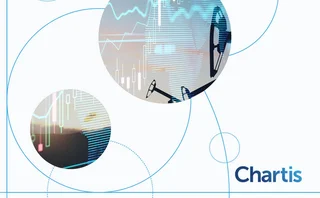
Senate investigates speculation in wheat market
Several market participants appeared before a Senate subcommittee today to discuss the effect of excessive speculation on the price of wheat futures.
The hearing was held after a report was released last month by Senator Carl Levin, chairman of the Senate Permanent Subcommittee on Investigations, and Senator Tom Coburn, an acting ranking minority member. Entitled 'Excessive Speculation in the Wheat Market', it called for a clampdown on traders buying wheat futures.
Discussing the subcommittee's investigation detailed in the report, Levin said: "We found that index traders purchased huge numbers of wheat contracts on the Chicago exchange [over the last three years], increased futures prices relative to cash prices, and created unwarranted costs and risks for wheat farmers, grain merchants, grain processors, and consumers."
He added that speculative money had overwhelmed the market and federal regulators had failed to address the issue.
Levin called on the Commodity Futures Trading Commission (CFTC) to phase out waivers to permission limits that are sometimes granted to traders. If this fails, he said the CFTC should consider imposing more rigorous limits.
Testifying in front of the subcommittee today, Gary Gensler, chairman of the CFTC, admitted that a continued lack of convergence between wheat futures and cash positions had reduced the market's usefulness for commercial hedgers. He said the CFTC was seriously considering the committee's recommendation to phase out existing waivers for index traders and that the topic would be discussed in upcoming hearings on applying federal position limits to commodity trading announced on July 7, 2009.
Gensler detailed that the average difference between the Chicago Board of Trade (CBOT) wheat futures price at contract expiration and Toledo cash wheat prices rose from an average of about 5 cents per bushel in 2005 to 47 cents in 2006, narrowed to 24 cents in 2007, but widened again to $1.07 in 2008.
The Chicago Board of Trade (CBOT) implemented changes that took effect from the July 2009 contract to address the problem, but the difference between the futures and cash price is still 83 cents. Gensler called this unacceptable, adding that several market participants had stopped using the CBOT wheat futures contract as a result.
Also testifying today, Charles Carey, vice chairman of CME Group, argued that numerous studies arranged by CME failed to support the conclusion that index traders or swap dealer participants caused volatility, high prices or lack of convergence. He added that, while the CME was committed to solving the convergence issue, the subcommittee's recommendations would cause more harm than good to the market.
The CME hopes to see significant improvement in convergence by mid-September, according to Carey, if not by the end of the year. He said this would be prompted by several contract modifications made in recent months by the Chicago Board of Trade (which is owned by the CME Group), including adding delivery points and increasing the storage fee seasonally. If this does not have an impact Carey said the exchange had additional modifications "at the ready".
Only users who have a paid subscription or are part of a corporate subscription are able to print or copy content.
To access these options, along with all other subscription benefits, please contact info@risk.net or view our subscription options here: http://subscriptions.risk.net/subscribe
You are currently unable to print this content. Please contact info@risk.net to find out more.
You are currently unable to copy this content. Please contact info@risk.net to find out more.
Copyright Infopro Digital Limited. All rights reserved.
As outlined in our terms and conditions, https://www.infopro-digital.com/terms-and-conditions/subscriptions/ (point 2.4), printing is limited to a single copy.
If you would like to purchase additional rights please email info@risk.net
Copyright Infopro Digital Limited. All rights reserved.
You may share this content using our article tools. As outlined in our terms and conditions, https://www.infopro-digital.com/terms-and-conditions/subscriptions/ (clause 2.4), an Authorised User may only make one copy of the materials for their own personal use. You must also comply with the restrictions in clause 2.5.
If you would like to purchase additional rights please email info@risk.net
More on Energy
ETRM systems 2024: market update and vendor landscape
This Chartis report evaluates energy trading and risk management systems that provide front-to-back, asset class-specific and geography-specific coverage, and considers the full energy trade lifecycle
CTRM systems 2024: market update and vendor landscape
A Chartis report on commodity trading and risk management systems that considers its different applications and addresses the market and vendor dynamics to determine the long-term and structural impacts of the overarching market evolution on the…
Energy Risk Commodity Rankings 2024: markets buffeted by geopolitics and economic woes
Winners of the 2024 Commodity Rankings steeled clients to navigate competing forces
Chartis Energy50
The latest iteration of Chartis’ Energy50 ranking
Energy trade surveillance solutions 2023: market and vendor landscape
The market for energy trading surveillance solutions, though small, is expanding as specialist vendors emerge, catering to diverse geographies and market specifics. These vendors, which originate from various sectors, contribute further to the market’s…
Achieving net zero with carbon offsets: best practices and what to avoid
A survey by Risk.net and ION Commodities found that firms are wary of using carbon offsets in their net-zero strategies. While this is understandable, given the reputational risk of many offset projects, it is likely to be extremely difficult and more…
Chartis Energy50 2023
The latest iteration of Chartis' Energy50 2023 ranking and report considers the key issues in today’s energy space, and assesses the vendors operating within it
ION Commodities: spotlight on risk management trends
Energy Risk Software Rankings and awards winner’s interview: ION Commodities







